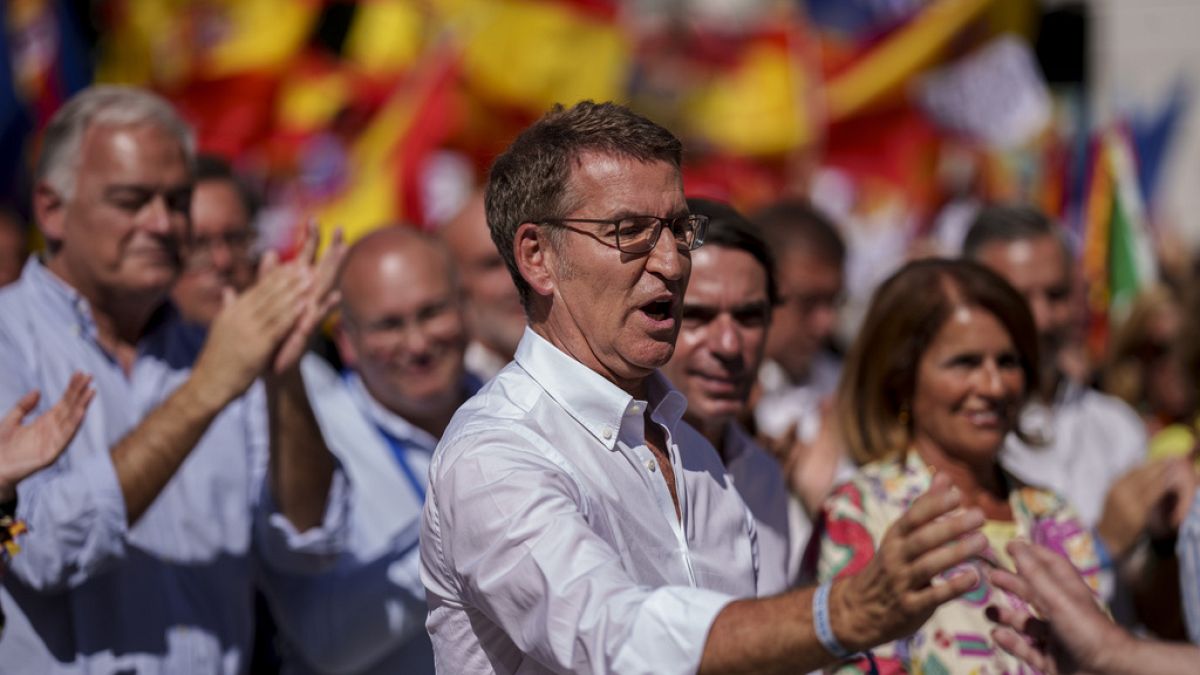Spanish Socialist leader Pedro Sánchez's new term got off to a stormy start after he clinched the support in parliament of two Catalan separatist parties in exchange for a controversial amnesty for hundreds of people in legal trouble over Catalonia's failed bit to secure independence.
Thousands took part in a demonstration in Madrid on Sunday to denounce the proposed amnesty for Catalan separatists prosecuted for the failed secession attempt in 2017.
Protesters held signs that translated to "Spain yes, traitors no" at the event, attended by right-wing leader Alberto Nunez Feijoo.
"We will not question the legitimacy of the government, but we will question its unreasonableness, yes, its amorality, yes, its shamelessness. We have the right to do that. We are doing it," said Feijoo.
Spain’s recently reelected Socialist Prime Minister Pedro Sánchez with backing from 179 lawmakers in its 350-seat parliament. His election was opposed by 171 deputies from the centre-right Popular Party and the far-right Vox Party.
His new term got off to a stormy start after he clinched the support in parliament of two Catalan separatist parties in exchange for a controversial amnesty for hundreds of people in legal trouble over Catalonia's failed bit to secure independence.
The proposal has triggered massive protests called by the Popular Party and Vox. Some of the rallies in recent weeks ended in clashes with police.
Sánchez has said that by agreeing to the deal he is “making necessity a virtue,” a way of acknowledging he didn’t want it while arguing it will benefit Catalonia and the rest of Spain in the end. Now, he will have to use all his dexterity to keep a mixed bag of supporters happy and his government in power for the next four years.
Sánchez also has the advantage of being able to call a snap election if he sees a moment when he thinks the Socialists could win more seats and free themselves of having to rely on such a motley crew of backers.
It is also highly unlikely that Sánchez’s supporters would switch to backing the Popular Party due to its alliances with Vox, which wants to reduce the powers of regional governments and rails against Catalan and Basque nationalism.
As Aitor Esteban of the Basque regionalist PNV party put it, the Popular Party's “tractor has an engine that is all clogged up because you have used Vox motor oil.”
But both of the Catalan parties have warned that they want much more than an amnesty. Their ultimate goal is for Madrid to authorise a binding referendum on independence for Catalonia, an idea that is anathema for most Spaniards and even for many Catalonia residents.
